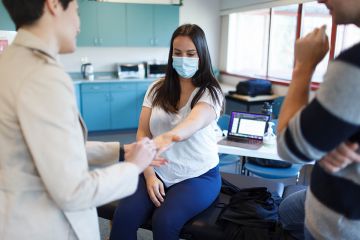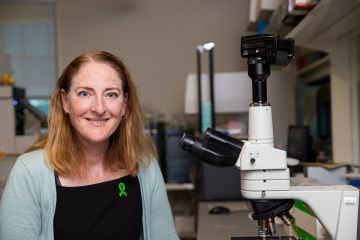A bitter pill to swallow
- Peigi McGillivray
How many pills do you pop daily to keep healthy? With pharmacies full of vitamins and supplements, and prescription and non-prescription drugs for everything that ails you, the number can add up quickly. And that’s a big problem, especially for seniors. If you’re taking more than a single medication or supplement, you’re at risk of having what is called an Adverse Drug Reaction, or ADR.They range from minor reactions such as a skin rash to serious events such as a heart attack or liver damage.
ADRs are frighteningly common. In the US, they are the fifth-highest cause of death after heart disease, cancer, strokes and lung disease. In the UK, more people die from ADRs than in traffic accidents.
Not surprisingly, seniors experience far more of these reactions than younger people. The older people are, the more likely they are to be prescribed medications. And because seniors often see specialists in addition to their own doctors, they can receive new prescriptions without having their current ones properly assessed.
“Adverse drug reactions often mimic illnesses common to the elderly,” says UVic medical anthropologist Peter Stephenson. For example, the combination of anti-depressants and sleeping pills can cause the symptoms of Alzheimer’s and dementia. “In other words, seniors in reasonably good health may end up being treated with more drugs for an illness they don’t have,” he says.
It’s very easy for seniors to end up taking six or more prescription medications in addition to any supplements or over-the-counter painkillers, cold medications or antacids they use. “That’s a big problem,” says Stephenson, “because seniors taking more than six prescription drugs have an 80-per-cent chance of experiencing a serious or even fatal ADR.”
What can we do about it? The key, says Stephenson, is in understanding how seniors view medication. Recently, he and a team of researchers—including graduate students Britt Vegsund and Rosanne Beuthin—conducted a study in Parksville and Qualicum Beach, asking seniors about their attitudes toward medication.
The survey revealed that most seniors don’t know much about ADRs or how to avoid them. And despite the intended benefits of taking medication, many seniors feel that health products can limit the control they have over their own lives.
“People told us their prescriptions often ‘got in the way’ of leading a normal life—making them too sleepy to enjoy an evening with friends, too dizzy to go for a walk, or too worried about urinary frequency to leave the house,” says Stephenson.
“But they didn’t have much technical knowledge about ADRs or how to avoid them. Many didn’t even know who to ask if they were concerned about the medications they were taking.”
The greatest need is for public education, says Stephenson. “We have to put ADRs on everyone’s radar—to spread the word about what symptoms to look for and who to talk to. We need physicians to pay more attention to the whole spectrum of drugs and supplements their patients may be taking.
“And we need to ask why so many of us are taking so many medications in the first place.”
In this story
Keywords: health, drugs, research
People: Peter Stephenson




